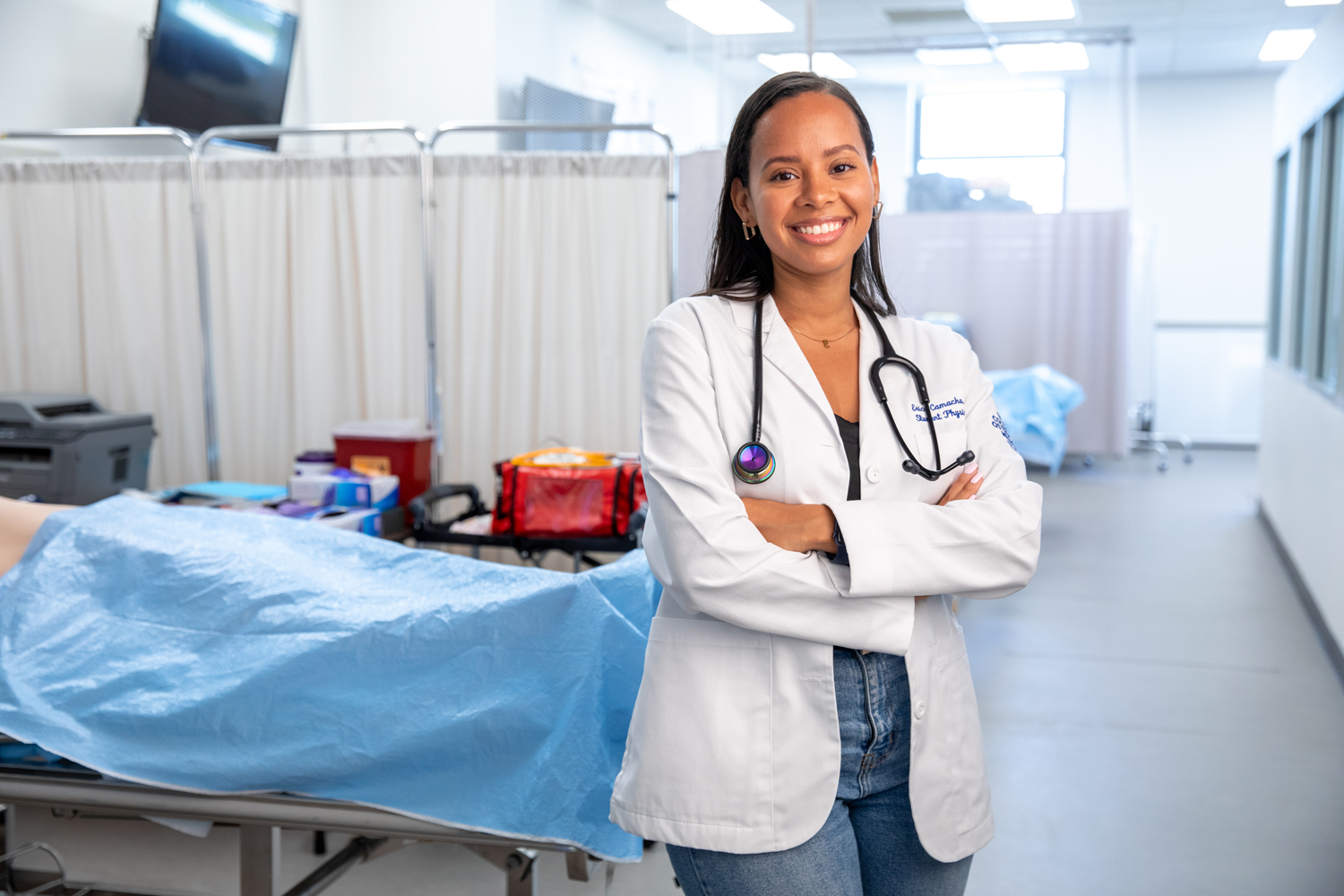Erica Camacho
Touro College of Osteopathic Medicine

For Erica Camacho, choosing medicine is a commitment to bridging the gap between communities in need and healthcare access. As the child of Spanish speaking parents, Erica saw first-hand how her parents struggled to understand complex medical terminology. “The few times my parents sought care, I was forced to tag along, and it became evident why,” she says.
Trying to help translate for her parents, opened her eyes to the social determinants of health, specifically around language and literacy. “As a bilingual speaker, language has allowed me to connect with people like my parents who may not be as comfortable seeking care. My own experiences being part of a medically underserved community, combined with the knowledge I’ve gained serving these communities, have inspired me to seek wider solutions by using language and literacy as tools, rather than barriers to proper medical assistance,” she says.
When Erica started college, medicine wasn’t initially on her radar. But an anatomy course piqued her curiosity, and she began volunteering and shadowing and each experience strengthened her interest in becoming a physician. “I attended a medical mission trip to Nicaragua, where I listened as wives explained their husband’s health issues since they were unable to take time off of work for an exam. Elderly women had edema in their legs because there was easier access to coffee than clean water. This experience reinforced my understanding of the relationship between poverty, education, and health, and solidified my decision to pursue a career in healthcare,” she explains.
Now a student at TouroCOM, Erica enjoys getting involved in the Harlem community through the many volunteer opportunities offered by the school. “From health fairs to local outreach efforts, I’ve been able to directly connect with underserved populations, gaining firsthand experience in addressing health disparities. These interactions have not only enhanced my clinical skills but also deepened my understanding of the social and environmental factors that impact patient care. By working closely with diverse community members, I am already making strides toward becoming the culturally competent physician I aspire to be,” she enthuses.
Ultimately, Erica hopes to become a physical medicine and rehabilitation physician. “I volunteered for four years with a community-based research program that used exercise interventions to improve the quality of life for students aged 18-22 with physical and intellectual disabilities. Seeing a student who once feared letting go of his walker gradually build the confidence to walk unassisted highlighted the profound impact that individualized care and rehabilitation can have on someone's life. A career as a physiatrist would allow me to continue working to enhance the functional ability and quality of life for such populations,” she says.
Above all, for Erica, becoming a physician is a privilege. “It is my dream to care for others through this field and to approach every patient interaction with purpose, compassion, and the commitment to make a difference.”